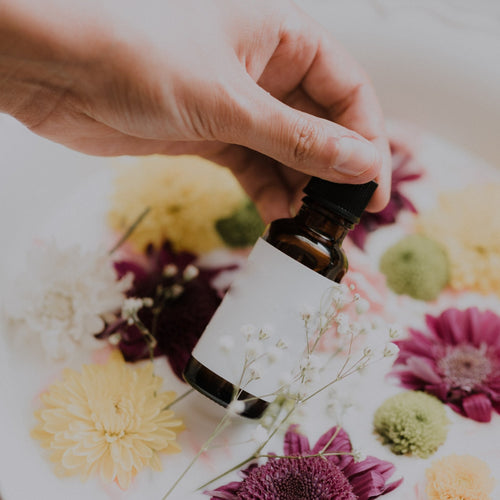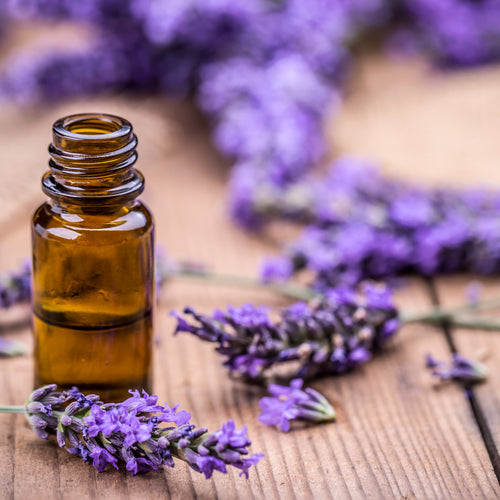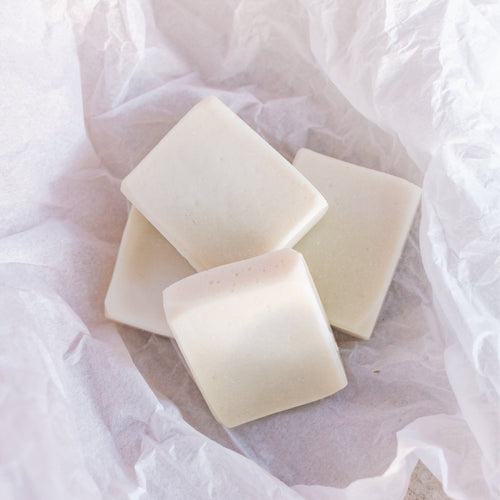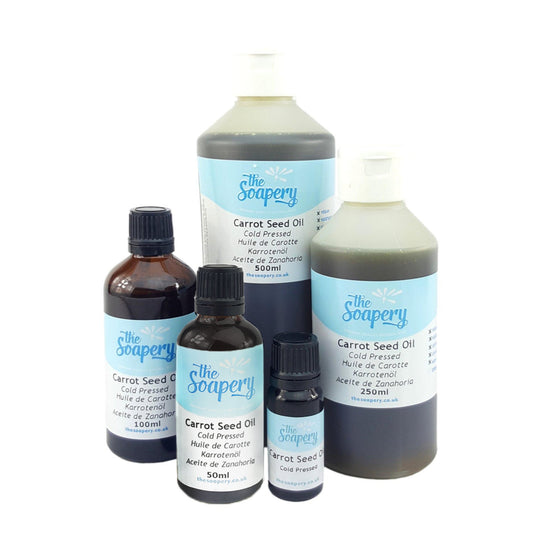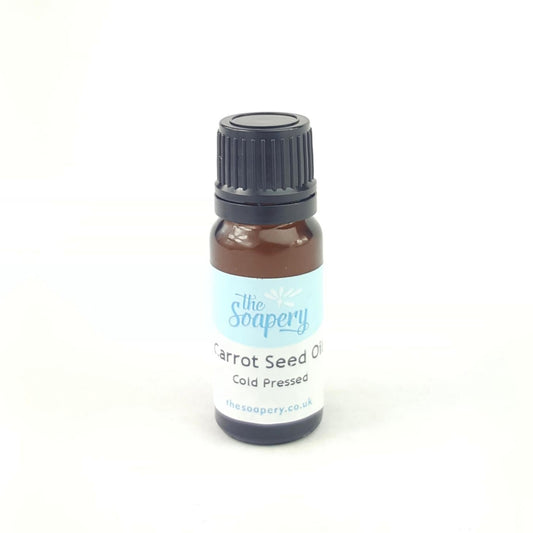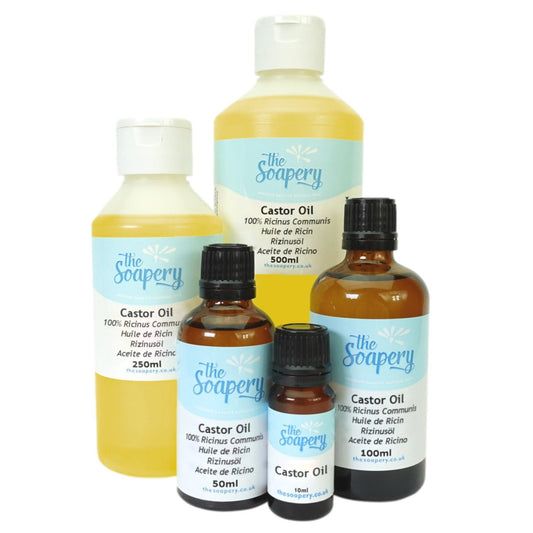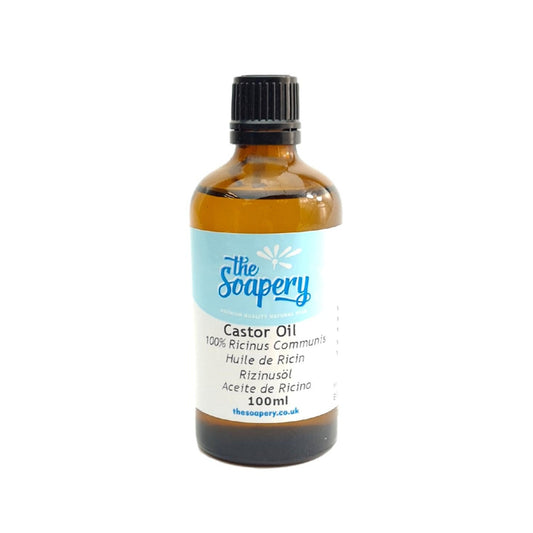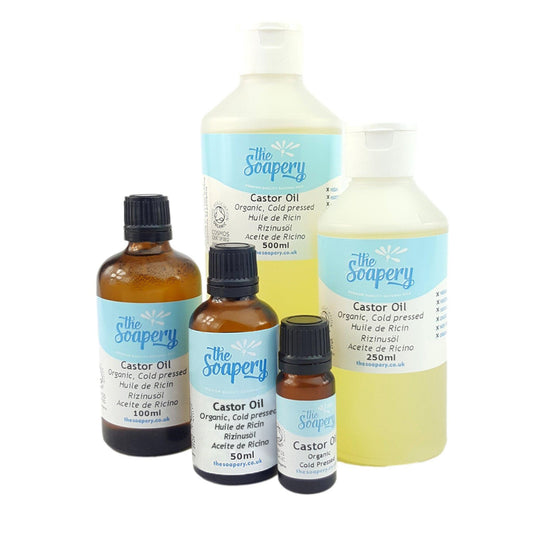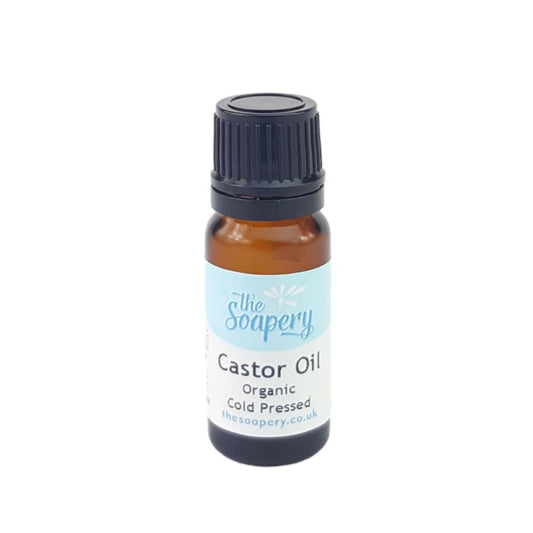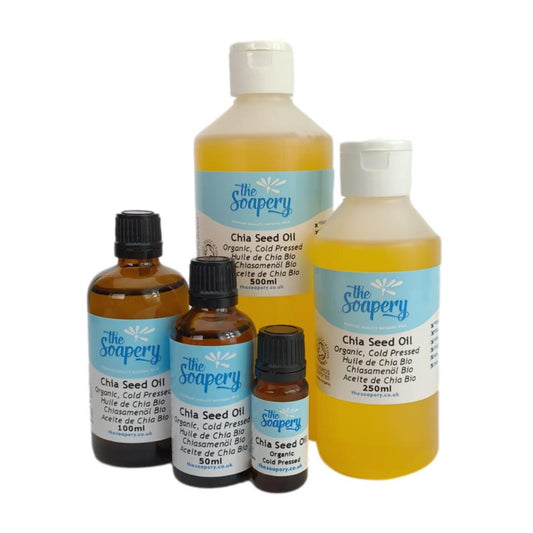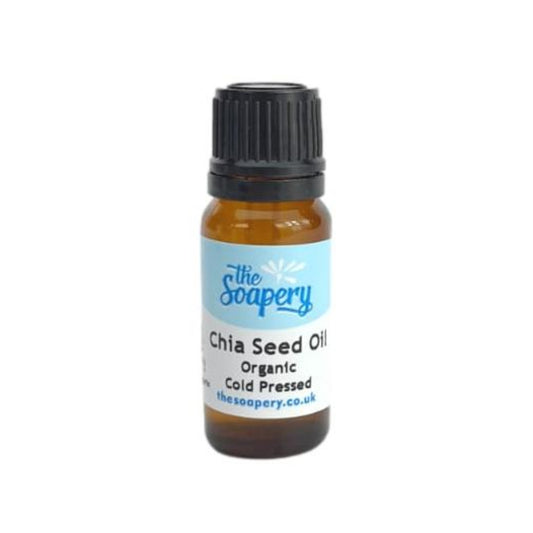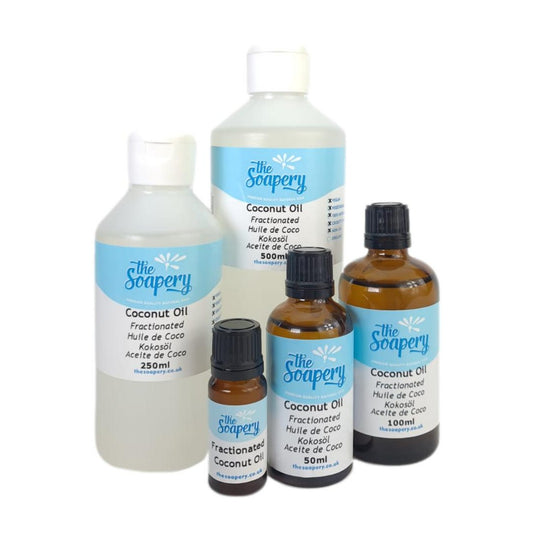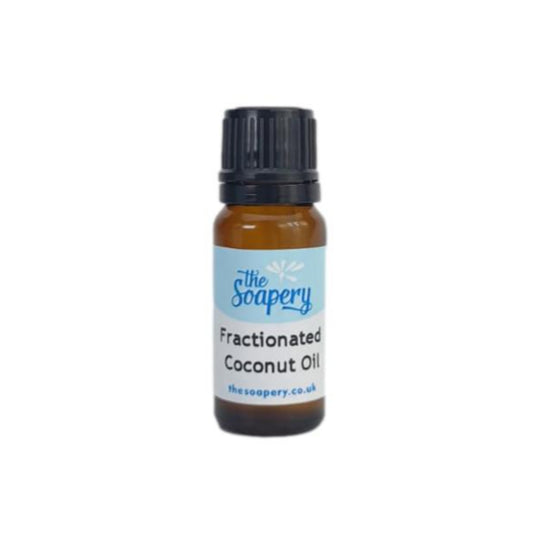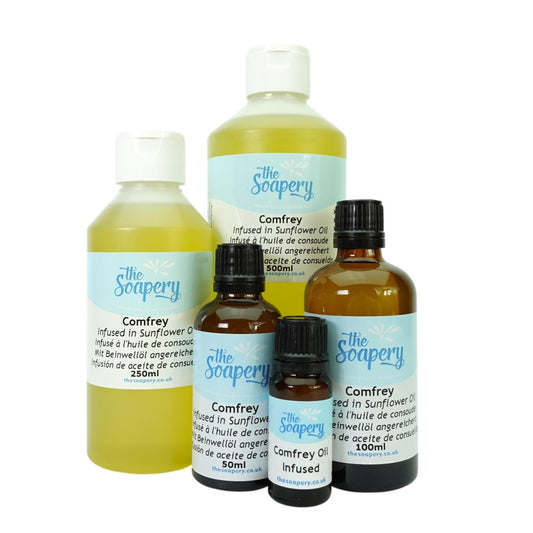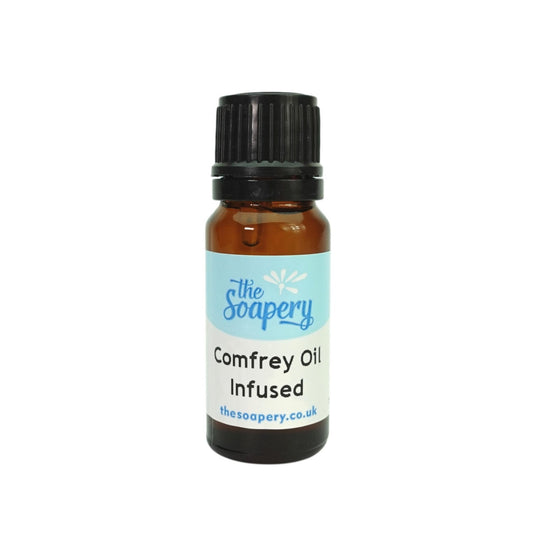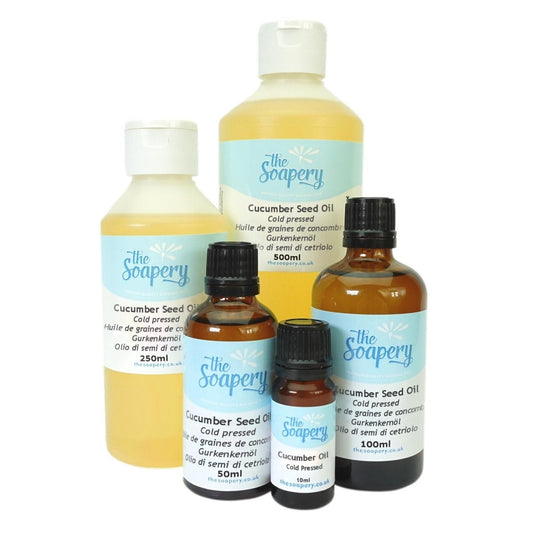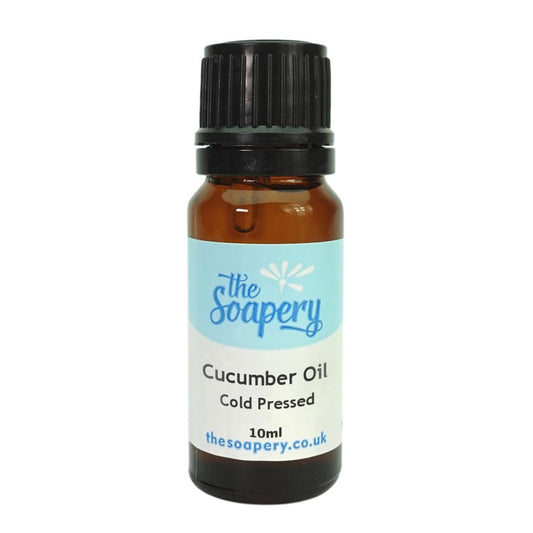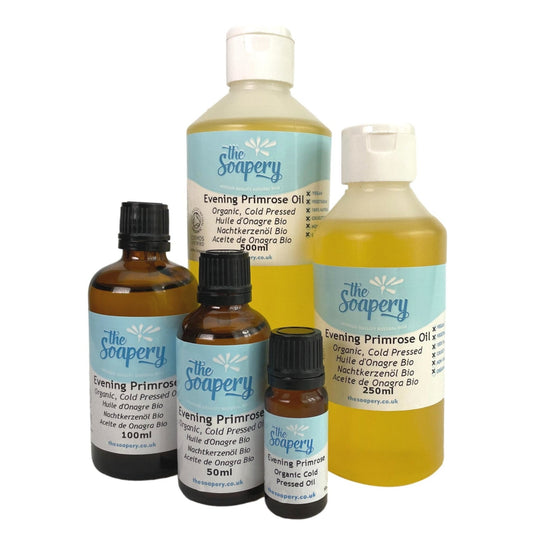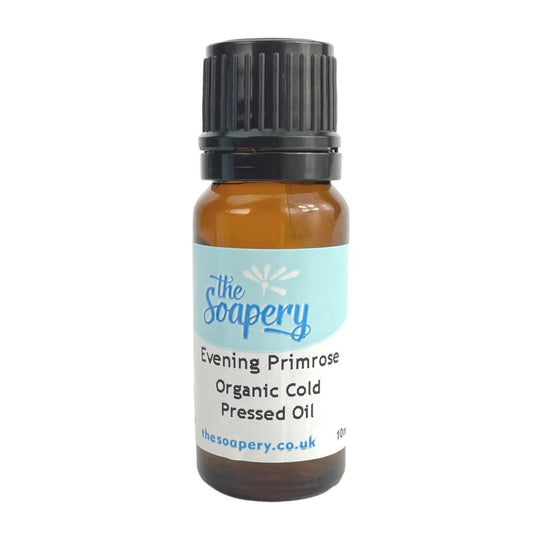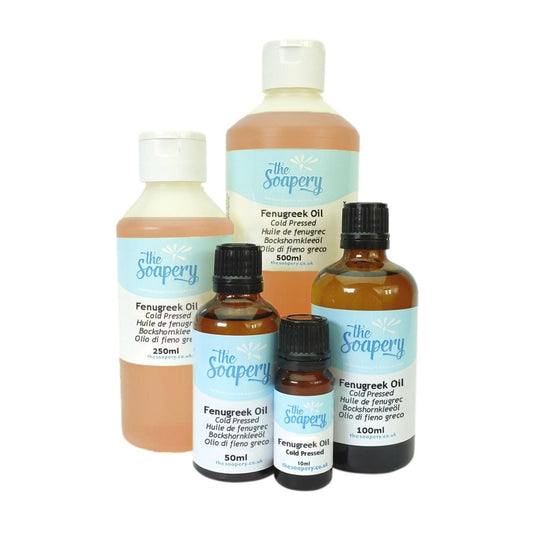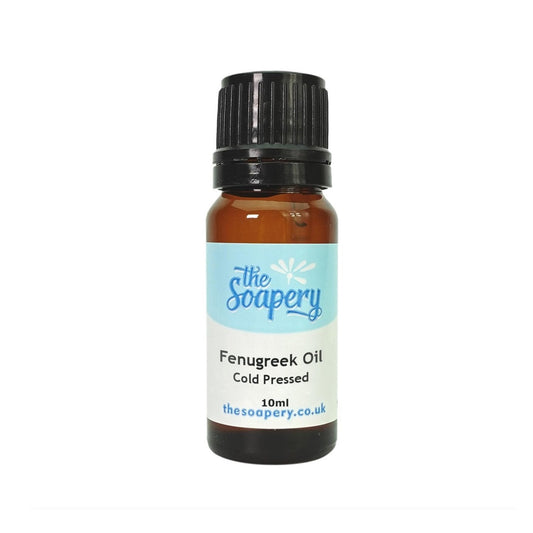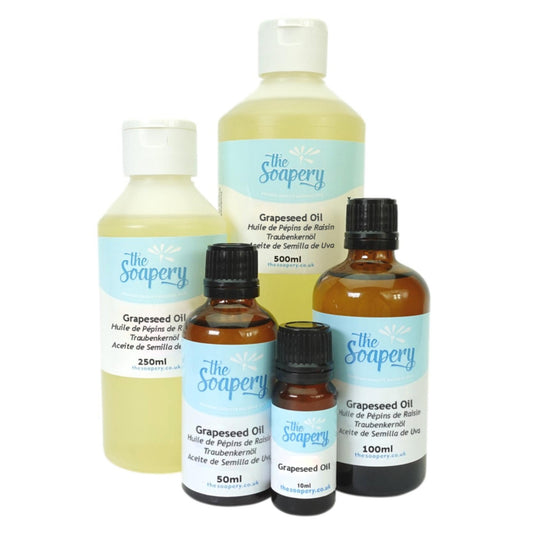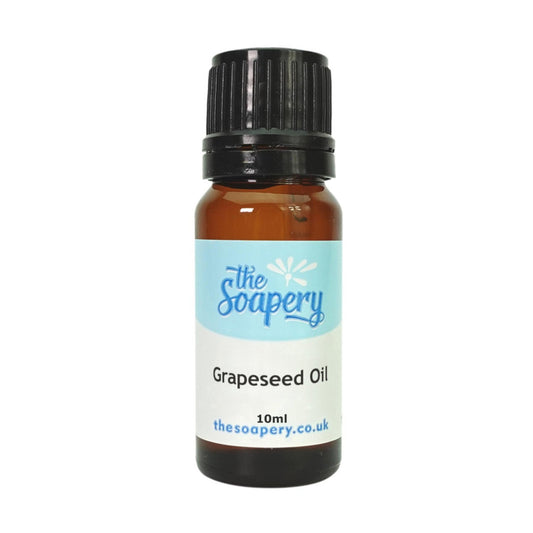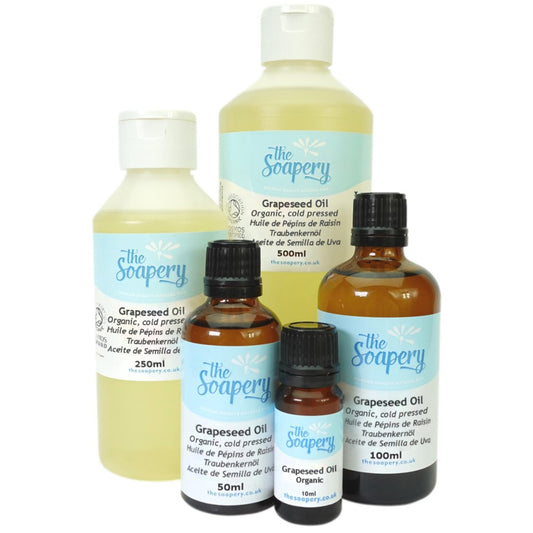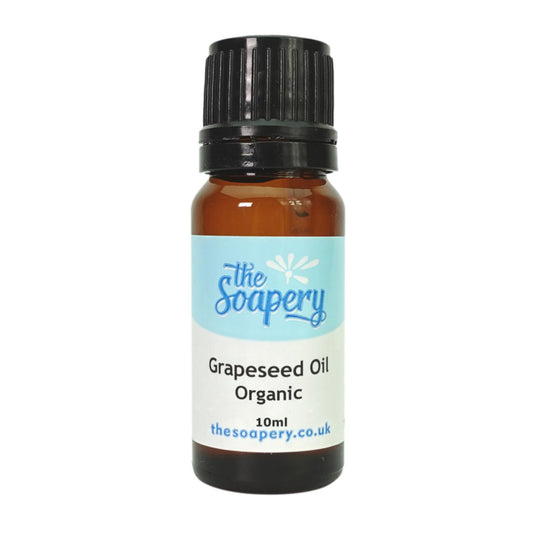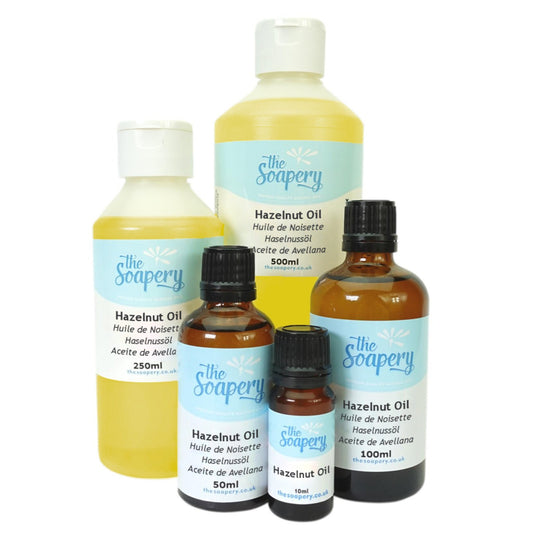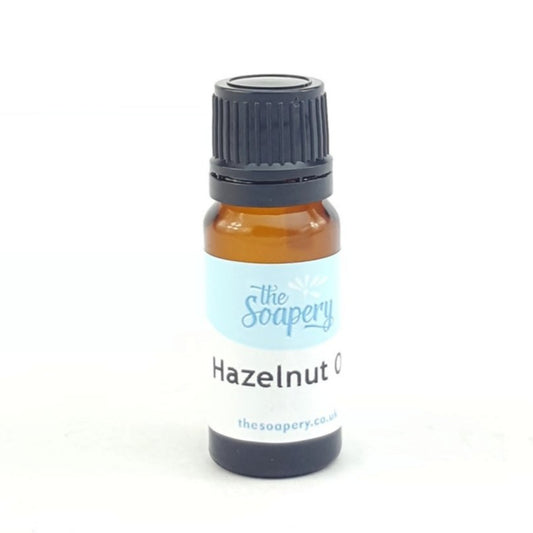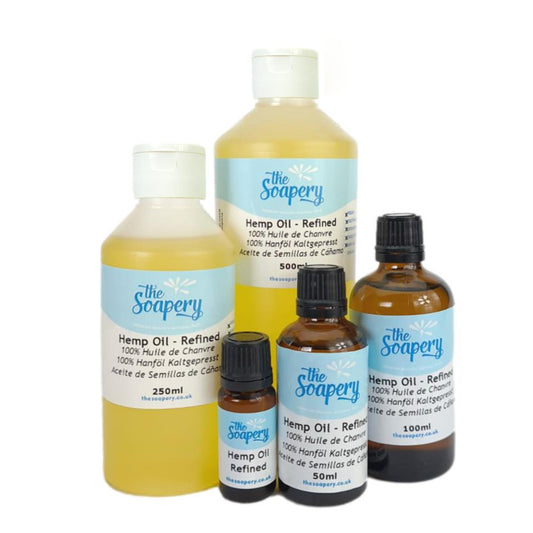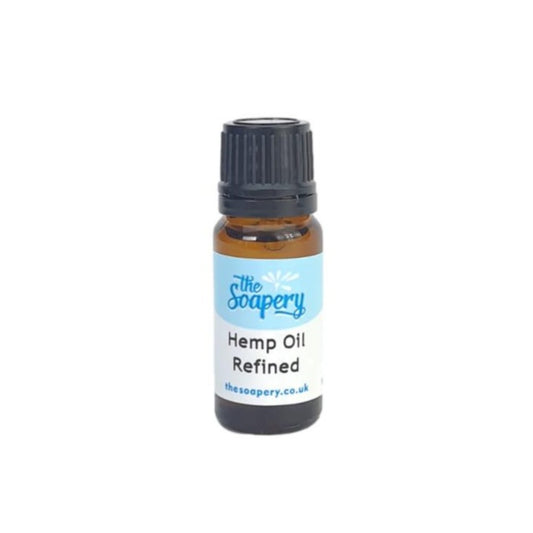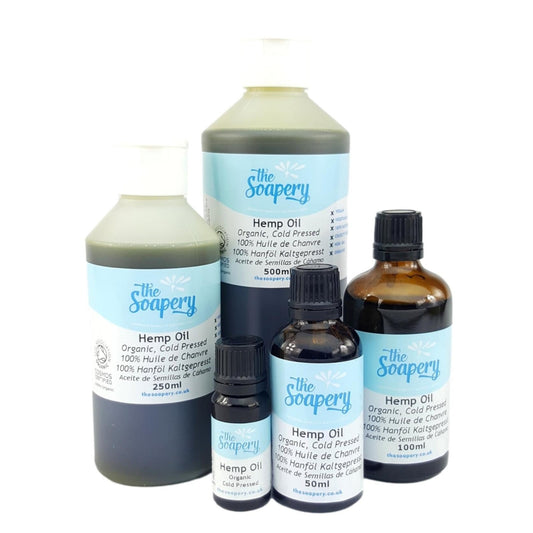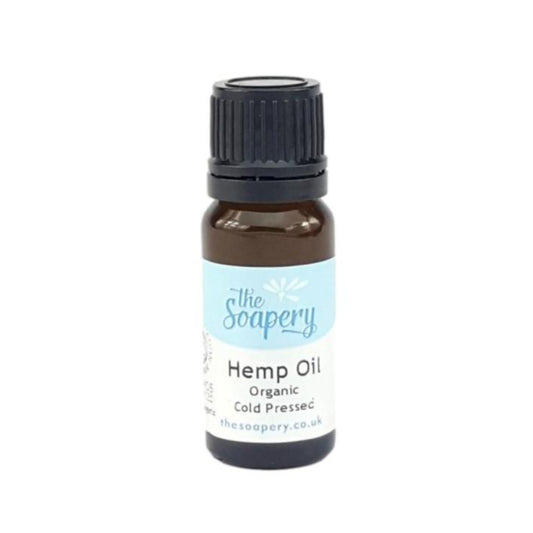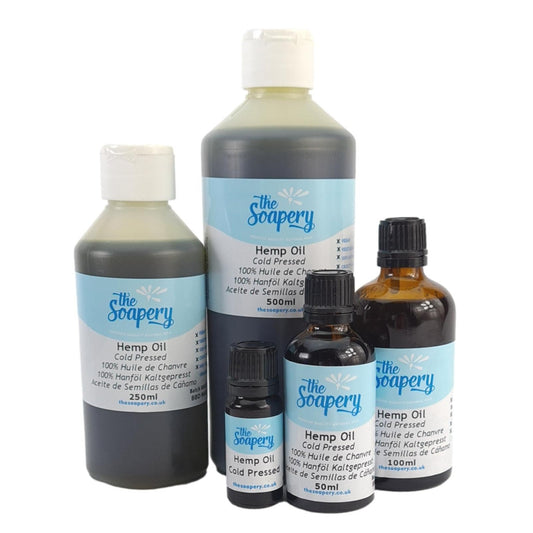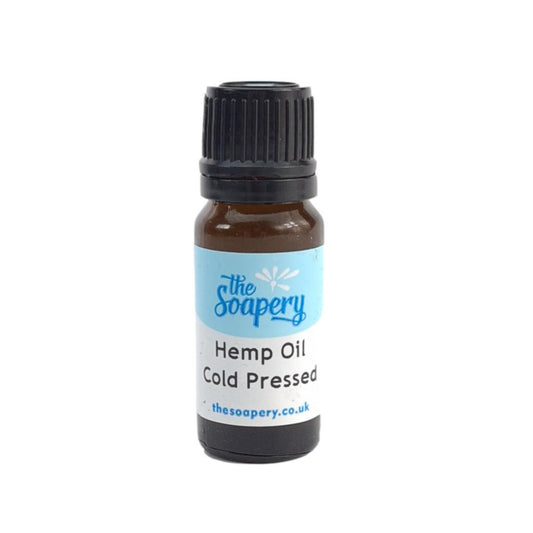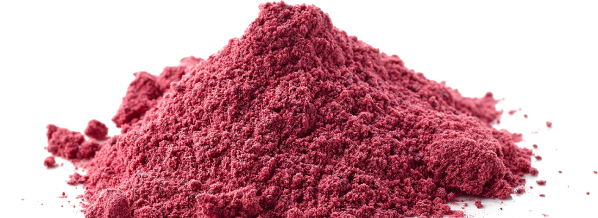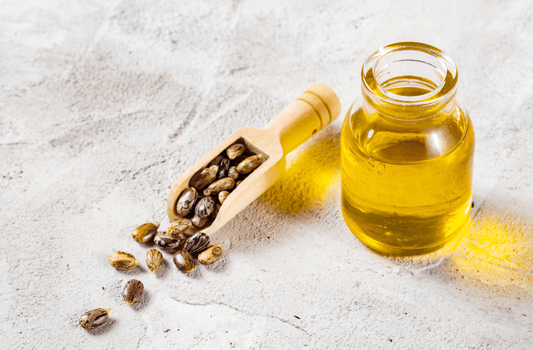
-
Carrot Seed Oil - Cold Pressed
-
Castor Oil - Organic, Cold Pressed
-
Chia Seed Oil - Organic Cold Pressed
-
Coconut Oil – Fractionated
-
Comfrey Infused Oil
-
Cucumber Seed Oil
-
Evening Primrose Oil - Organic, Cold Pressed
Evening Primrose Oil - Organic, Cold Pressed
- Regular price
- From £3.89
- Sale price
- From £3.89
- Regular price
-
-
Grapeseed Oil – Organic, Cold Pressed
-
Hemp Oil (Hempseed Oil) – Refined
-
Hemp Oil - Organic, Virgin, Cold Pressed
Hemp Oil - Organic, Virgin, Cold Pressed
- Regular price
- From £2.79
- Sale price
- From £2.79
- Regular price
-
-
Hemp Oil – Virgin, Cold Pressed
Why choose The Soapery?
-
Free Mainland UK Shipping
Get your ingredients quickly at no extra cost.
-
Same Day Dispatch*
Order before 3pm to have your package sent then and there.
-
Low Pricing
No glossy marketing or false promises mean big savings.
-
Ethical Suppliers
No qualms here. Our ingredients are ethically and sustainably sourced.
About Carrier Oils
Diffuse, disperse, and delight with the wonders of carrier oils. From bespoke aromatherapy and massage blends to cosmetics creations, these all-natural wonder ingredients make the perfect pairing for all things essential. Unlock the power of fully-absorbent goodness today - shop our comprehensive range and get crafting!
Learn More About Carrier Oil
The perfect crafting partner.
Unlock the unique benefits of plant-powered ingredients with our collection of pure carrier oils. Extracted with care from the world’s very best natural sources - from seeds to nuts and beyond - these oils provide a wealth of benefits to a wide range of bath and body creations.
For centuries, carrier oils have been used to hydrate, nourish, and protect the skin and hair. Some carrier oils are rich in essential fatty acids, which provide additional nutritional benefits. Today, they’re an essential ingredient in everything from aromatherapy and massage products to skin and haircare. How will you use them?
What are Carrier Oils?
Carrier oils do just as they say on the tin (or bottle) - it really is that simple! They’re used to carry other ingredients, like essential oils - whether onto the skin, or within a bottle for products like diffusers.
In short, they’re the ultimate base, used for their keen ability to disperse, distribute, and dilute. Various vegetable oils, such as safflower oil, can be used as carrier oils for essential oils.
The best part? There’s a whole library of all-natural options to choose from! Whether you’re after a vitamin-rich option for your latest moisturiser blend (go for gold with almond oil), or a non-comedogenic skincare base (why not try our rosehip or argan oil), there’s an option out there for all.
Each and every one of our carrier oils can bring benefits to your crafting cupboard - but the final choice is down to you. Browse our full range above for more information, buy with us for fast, free shipping, and get making! We can’t wait to see what you create.
How to Use Carrier Oils
When it comes to crafting your own soaps and cosmetics, carrier oils are the crème de la crème, particularly when it comes to pairing up. These versatile oils have a special talent for infusing other ingredients - but how exactly should you be using them?
In short, wherever essential oils are found, carrier oils shouldn’t be far away - but that doesn’t mean they shouldn’t be used alone! These wonderfully moisturising ingredients are the ultimate skincare essential - making gorgeously hydrated skin achievable for anyone, even without their famous partner ingredients.
Our makers’ favourite carrier oil-based recipes include luxurious lotions, handmade bar soap, aromatherapy and massage oils, lip balms, and body scrubs. The options really are endless!
For full carrier oil recipes, inspiration, tips, and troubleshooting, why not read our blog?
The Benefits of Carrier Oils and Essential Fatty Acids
Our makers love carrier oils - and for good reason! These unsung heroes make the perfect base for almost every cosmetics and skincare creation, carrying goodness straight to the skin.
Though often paired with other ingredients, carrier oils are an incredibly versatile craft cupboard must, able to work both solo as a stand-alone moisturiser, and as a base for everything from lotions and serums to cosmetics. Many carrier oils are rich in fatty acids, which are essential nutrients for skin health and nourishment.
Plus, the benefits don’t end there. Want to immerse your products in the best vitamins and minerals the world has to offer? From jojoba to coconut oil and beyond, carrier oils are packed with all the skin-loving goodness you could ever want to see in an ingredient, in addition to being free of harsh preservatives and artificial fragrances.
Our Favourite Skincare Recipes
We Value Each of Our Customers
Accreditations/Awards
We’re committed to offering a vast range of all-natural, organic products certified by The Soil Association, and we take pride in doing our part for the world around us.
Like most ingredients, the oils, butters, powders, and decorations in your handmade products are farmed or extracted from the natural world. Those certified as organic by the Soil Association were grown, produced, and harvested in line with strict regulations designed to protect and sustain the environment, including soils, ecosystems, animals, and people.


